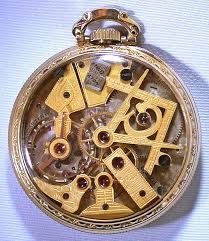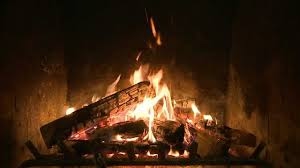The first Masonic Moment in our Notice Paper appeared in September 2012 and was supplied by Lodge Devotion's Secretary, Don (who is not the same Don as “Don’s Diary”). Don was appointed in August 2012 as Secretary, but was forced to resign due to ill health in 2013. He passed away in early 2014. He was a Past Junior Grand Deacon, on Grand Lodge’s Education and New Members Committees and was involved in presentation of the “Preparing for Mastership” course for wardens. He was well known and respected.
A FreemasonA Freemason should be like a good watch – An open face, busy hands, pure gold, well regulated & filled with good works. Masonic Moment - ON THE LEVEL
To a Freemason on the level means just that – All Freemasons are Brothers who meet on the same level, regardless of their social or economic status outside the lodge. Princes, Presidents, and Leaders of business are no better or more important than bus drivers, plumbers and paper boys when they sit in the lodge together.
Freemasonry does not detract from a man’s accomplishments, nor does it exalt him above his Brethren because of his position outside the lodge. Sept 2012 Notice Paper of
Lodge Devotion 723 UGLV
What is the Forty Seventh Proposition of Euclid ? It was an invention of our ancient friend and brother, Pythagoras, who, in his travels through Asia, and Europe, was initiated into several orders of priesthood? This wise Philosopher enriched his mind abundantly in a general knowledge of things, more especially in Geometry or Masonry. On this subject he drew out many problems and theorems, and among the most distinguished he originated this, when, in the joy of his heart, he exclaimed, "Eureka" meaning "I have found it"; and upon the discovery, is said to have sacrificed a hecatomb.
From W.Bro V. Rev Fred Shade PGStdB
A Masonic Moment - What Is Freemasonry?
Freemasonry is personal, private and beyond description. We have rituals that we perform, like a play, that remind us of certain moral lessons, and hint at the antiquity of our craft. These are the material manifestations of what we do. They are no longer secrets, yet they remain private in most cases as every group or person has the right to personal privacy. They are the process of what we do. Just as what I do (for a living or otherwise) does not define me as a person, so the manner of what we do, does not define us as Freemasons. My obligations (oaths) make me a Freemason, and the manner in which I live and build my house of character show that I really understand and earn the title of Free and Accepted Mason.
The real secrets of Freemasonry are what happens in you!
No man can see into your mind or heart. No man can tell you how to apply the allegorical lessons of Freemasonry to your life, actions and character. These are the real secrets...it’s all about how your mind and conscious uses the information that you are presented.
From Oct 2012 Notice Paper of Lodge Devotion 723 UGLV
A MASONIC MOMENT: WHAT IS FREEMASONRY? Verson 2
During your initiation you are told it is a “Peculiar system of Morality veiled in allegory and illustrated by symbols”.
That is all well and good, but what does it exactly mean?
Peculiar: A special code of morality based on and derived from the lives of operative Stone masons of ancient times.
Morality: A moral system is provided by the Masonic Ritual in an allegorical format part fact and part legend.
Symbols: These are Working Tools. 24” Gauge, Square, Plumb Rule, Compasses, Chisel, Gavel, Skirret and Pencil. Education and learning in the ancient world was undertaken by symbols.
For Example the Plumb Rule teaches us to be upright and the Chisel has a sharp edge so it teaches us to be sharp of mind and chisel away till we get an answer.
Masonry is not only the most ancient and most honourable society that ever existed but serves to inculcate (instill) the principals of piety (goodness) and virtue (high merit) among its genuine professors (acknowledgers)
From Dec 2012 Notice Paper of Lodge Devotion 723 UGLV
From April 2013 Notice Paper of Lodge Devotion 723 UGLV
Should be a Pattern for Imitation The Worshipful Master should be a pattern for imitation by the brethren, the sun for the illumination of the Lodge, the custodian of its work, the embodiment of a gentleman.
In the ceremonies of opening and closing the Lodge he should be infallible as he is indispensable. He should not permit ‘short cuts’ in the beautiful ceremonies, which are too grandly beautiful and complete to be either prolonged or abridged.
Things I Learnt on TV – The Beehive.The beehive is a well known Masonic Symbol. It represents order, industry and co-operation. The bee represents co-operation and renewal. Many might say they represent eternal life... I will let you debate that... I would have said it does not appear much in Victorian Freemasonry – how wrong could I be ?!
Grand Lodge is uploading past segments of our Channel 31 program to youtube. “Masonic Regalia’ is one such segment and on watching one just then, I leaned that the dome shaped object on each of our officers collar is a beehive. So clear once you see it! I never knew....
To watch, click here Where did the term "lodge" come from? As with many things we can only speculate as to where the word "lodge"
derived. Dictionaries say that it probably came from the buildings, or huts,
where the craftsmen worked and lived. Lodges of masons are mentioned at York
Minster in 1352, at Canterbury Cathedral in 1429, at the Church of St. Nicholas,
Aberdeen in 1483 , and at St. Giles, Edinburgh, in 1429. "Lodge" first referred
to non-permanent bodies, but gradually reverted to fixed localities, such as
Edinburgh in 1598 From http://www.themasonictrowel.com/masonic_talk/stb/stbs/93-09.htm
Almoner’s
Column -
| Definition of a Freemason
A Mason is a man who is clean inside and out, who neither looks up to the rich nor down on the poor, who can give without complaining, who can prosper without bragging, and who is considerate of women, children and old people. He is a man who is too brave to lie, too noble to cheat, too sensible to loaf, and who takes his share of the world's goods, and lets other people take theirs. A Masonic Fireside Story From TSTTM E-magazine August 2015 A member of a Lodge, who previously has gone to meetings regularly, stopped attending. After a few months, the Worshipful Master decided to visit him. It was a chilly evening and the Worshipful Master found his Brother at home alone, sitting before a blazing fire. Guessing the reason for the Worshipful Master's visit, the Brother welcomed him, led him to a comfortable chair near the fireplace and waited for the inevitable questions and possible mild admonishment. The Worshipful Master made himself comfortable, but said nothing. In the still silence, they both contemplated the dance of the flames around the burning logs. After several minutes, the Worshipful Master took the fire tongs, carefully picked up a brightly burning ember and placed it to one side of the hearth, all alone. Then he sat back in his chair, still silent. His host watched in quiet contemplation. As the lone ember's flame flickered and diminished, there was a momentary glow, then its fire was no more. Not a word had been spoken since the initial greeting. The Worshipful Master glanced at this watch and chose his time to leave. He slowly stood up, picked up the cold, dead ember, and placed it back in the middle of the fire. Immediately, it began to glow once more, with all the light and warmth of the burning logs around it. As the Worshipful Master reached the door to leave, his host looked him in the eyes and said, "Thank you for your ardent summons, my Brother. I'll be back in our Lodge next meeting. Postscript – Remember - when you are at lodge, it’s your job to provide the warmth and light in the above story to kindle fraternity with your fellow brothers. A Recipe to be Miserable. The best recipe we know, if you want to be miserable, is to think about yourself; how much you have lost, how much you have not made, and the poor prospects for the future. A brave man with a soul in him gets out of such pitiful ruts and laughs at discouragements, rolls up his sleeves, whistles and sings, and makes the best of life. This earth never was intended for a para-dise, and a man who rises above his discouragements and keeps his manhood will only be the stronger and better for his adversities. Many a noble ship has been saved by throwing overboard its most valuable cargo, and many a man is better and more humane after he has lost his gold.
From Monash Gully District No. 114 Volume 2 Issue 10: October 2012
Masonic Moment -
THE SQUARE AND COMPASSES ARE MORE IMPORTANT THAN OTHER WORKING TOOLS WHY? Without compasses no accurate square can be made: without a square no building can be erected. The square and compasses are universally the symbol of a Master Mason and of Freemasonry. Symbolists have read many meanings into both these tools of a Freemason. Both symbols are much older than Freemasonry; Chinese manuscripts give them a Masonic significance (although there was no Freemasonry in that country two thousand years ago).
No symbols in Freemasonry offer so many possible interpretations. But many symbols mean different things to different men; each interprets according to his best light. In modern Masonic rituals, the compasses are “dedicated to the Craft” and is emblematic of the restraint of violent passions. Here “passions” refers to any over-emotional lack of control. It is passions in the larger sense; intemperance, temper, unjust judgment, intolerance, selfishness, that the spiritual compasses circumscribe. The positions of the square and compasses in the three degrees are universally symbols of light, further light, more light. Oct 2012 Notice Paper of
Lodge Devotion 723 UGLV A Masonic Moment – Ancient Manuscripts or Regius PoemFrom March 2013 Notice Paper of Lodge Devotion 723 UGLV
The Halliwell Manucript, also known as the Regius Poem, is the first known Masonic text. It consists of 64 written pages in poetic form. The poem begins by evoking Ueclid and his invention of geometry in ancient Egypt and then the spreading of the art in”‘divers lands”. This is followed by fifteen points for the master concerning both moral behaviour (do not harbour thieves, do not take bribes, attend church regularly, etc.) And the operation of the work on a building site (do not make the masons labour at night, teach the apprentices properly, do not take on jobs that you cannot do etc.) There are then fifteen points for craftsmen which follow a similar pattern.
The general consensus on the age of the document dates its writing to between the late 1300s and the middle of the 15th century, and from internal evidence its author appears to have been a West of England clergyman. The manuscript was recorded in various personal inventories as it changed hands until it came into the possession of the Royal Library, which was donated to the British Museum in 1757 by King George 11 to form the nucleus of the present British Library. During this time, the document was generally described as a poem of moral duties. The significance of of the document as relating to Freemasonry was not realised until it was featured in an article on Freemasonry by James Halliwell in 1840. The text of the document states that freemasonry was brought to England during the reign of King Athelstan from 924 to 939.
THE BLESSING OF REHEARSAL
Do you leave lodge Happy – Satisfied – ENTHUSIASTIC – REFRESHED?
How do we achieve this euphoric state? EASY! Fully participate in both the Lodge room and the South. An officer recites ritual and perambulates, PMs and MMs may deliver charges while others may join in with the odes and observe and so learn the ceremonies. Attendance at rehearsal will contribute immensely to your enjoyment and satisfaction. Rehearsing the Opening involves every floor officer. When everyone knows their response and recites them well; confidence lifts, enjoyment ensues.
This cannot happen without Private Practice, Rehearsal with your colleagues, Learning to graciously except official prompts and studying ceremonial movement
Words And SignsAttached to the Harleian ms, (1665) is a scrap of paper on which is written "there is several words and signs of a Freemason to be revealed to you which as you will answer before God at the great and terrible day of judgement you keep secret and not to reveal the same in the ears of any person but to the Masters and fellows of the said society of Freemasons so help me God." This is the earliest mention of words and signs in the Old Charges of Masons. Someone to blend the plaster,
Extract from “Light Reflected”Brother Bradley Kohanke, PM One Sunday evening, a young salesman was driving through the country for a meeting with a prospective client the following morning when his car suddenly broke down. Being Sunday evening, each call he made met with a recorded message informing him that business hours were Monday through Friday. Just at that moment he saw a farmer headed towards him on his tractor. After a brief discussion, the farmer told him that he would pull his vehicle to his home, put him up for the evening, and loan him his truck the following morning to make his appointment. Beside himself with gratitude, the young salesman marveled at the generosity of the farmer. As they shared an evening meal, the young man saw several pictures of the old farmer with groups of men wearing Masonic aprons. Glancing down at his own Masonic ring that he recently received for being Raised, the young man gave a wry smile and went to bed happy to know that his Brother had recognized his ring and taken care of him. The following day upon returning from his appointment, the young man found that the farmer had repaired his car. The young man thanked him profusely and told the farmer how grateful he was and how glad he was that he had joined the Fraternity. The farmer gave him a puzzled look and the young man said, “I saw the pictures of you with Masonic Brethren and I know you must have seen my Masonic ring. I understand that’s why you helped me.” The old farmer just shook his head and said, “My Brother, I didn’t help you because you’re a Mason…I helped you because I AM A MASON.” So, being a good Mason means being a good neighbor…not for the sake of reward and not only to other Masons, but because it’s the right thing to do. Remember the first important lesson taught you in Masonry? Of course it reminds us that we should offer help to a Brother in need, but it begins by admonishing us to offer relief to “anyone” in need. All are your neighbors, and all are deserving of your aid and assistance. |




